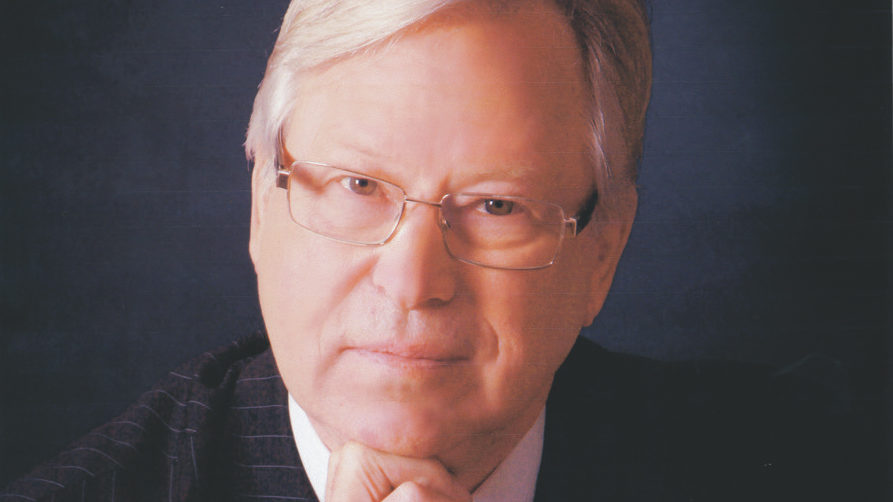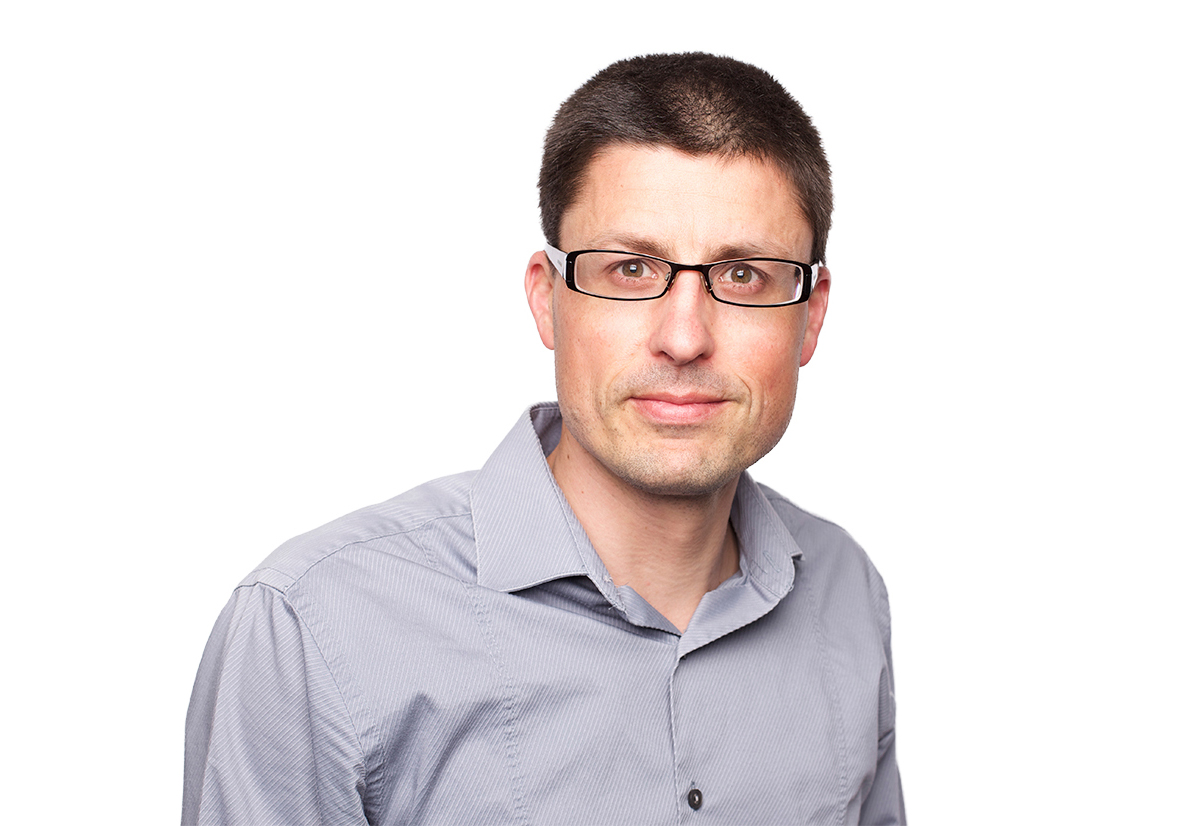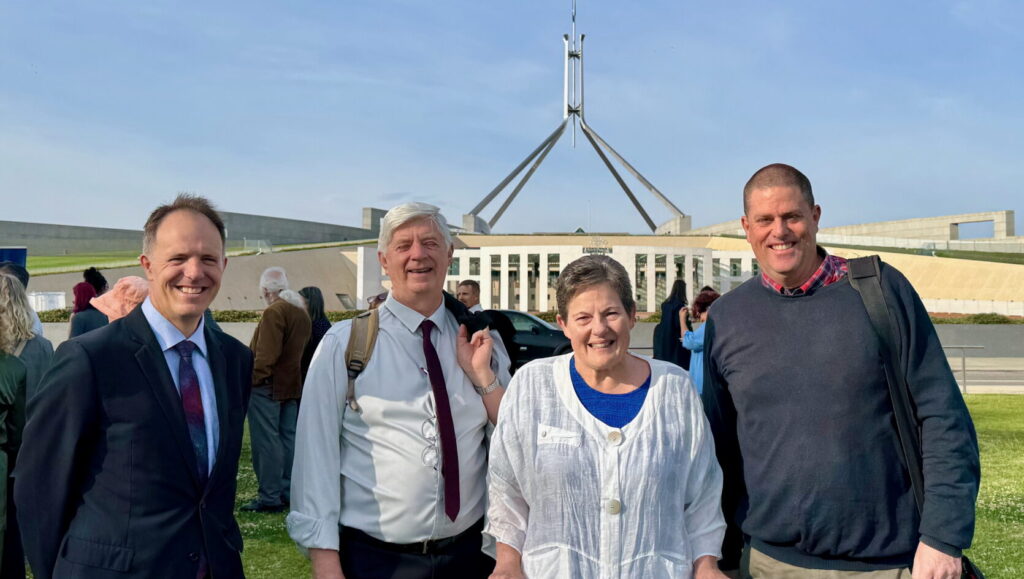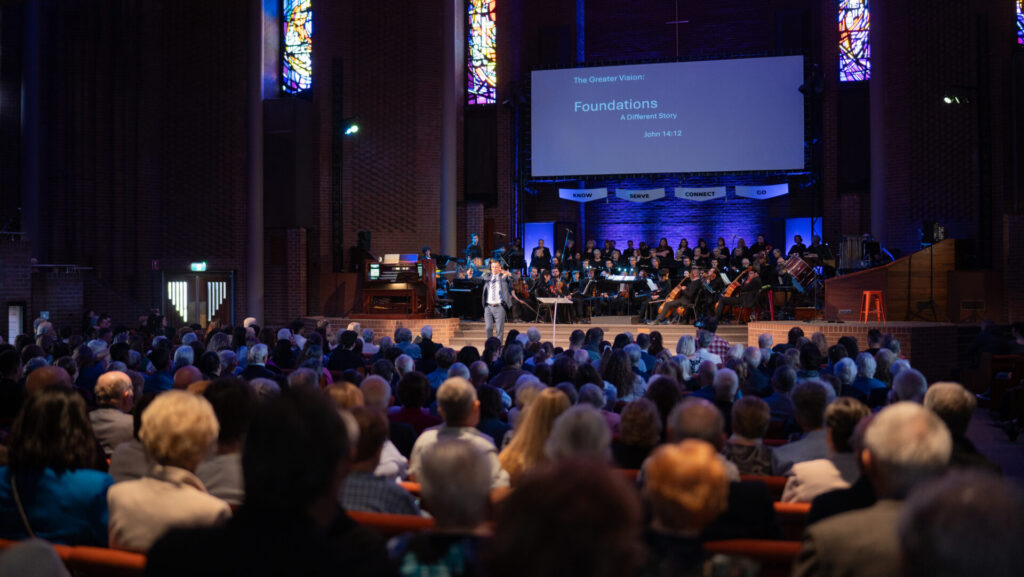The memorial service for an Avondale alumnus at the centre of one of Australia’s most publicised legal cases may lead to a formal apology for wrongful conviction.
Michael Chamberlain and then wife Lindy were charged—she with murder, he with being an accessory after the fact—and convicted after the disappearance of their nine-week-old daughter, Azaria, at Uluru on August 17, 1980. They were exonerated in 1988. Twenty-four years later, a fourth—and final—coroner’s inquest found the cause of death: Azaria had been attacked and taken by a dingo.
That drive to the rock divided Chamberlain’s life, said solicitor and family lawyer Stuart Tipple during the service at Avondale College Seventh-day Adventist Church on Monday (January 16). “Thirty-six years pre-rock and 36 years post-rock.”
Tipple, who visited Chamberlain in Gosford Hospital the day before he died from complications of acute leukemia, issued a challenge to the Northern Territory Government: make the apology because “an apology is never too late . . . In 1980, there was a sacrifice in the wilderness. Michael’s expectation that if you’re innocent you have nothing to fear died. That expectation was put on the altar of political expediency and it was consumed by rumour, prejudice and incompetence. And yet Michael remained a decent man looking for the good in others . . . [He] will not be able to rest in peace unless we remember his legacy and continue the fight on his behalf.”

Dr Norman Young did his part. The Conjoint Associate Professor at Avondale College of Higher Education indexed trial transcripts and coroner reports during the royal commission in 1987. He wanted to ensure Chamberlain’s association with the Seventh-day Adventist Church would not be a cause for prejudice. The research led to the writing of a book, Innocence regained: The fight to free Lindy Chamberlain. “Michael expected sympathy, but he got suspicion,” said Dr Young during the prayer at the beginning of the service. “He expected to be believed, but he was doubted. He expected concern but he got condemnation. He expected love, but he received hostility. He expected justice, but he got prejudice.”
John Bryson wrote a book, too. Evil angels tells the story of the trial of the Chamberlains for murder. During his tribute, Bryson noted how “one’s being persists in one’s consequences.” Addressing Chamberlain personally “to prolong your presence with us,” he said, “Of your biological consequences, we watch your children who carry you with them, as will their children. But look, Michael, how broad are your consequences.” He spoke of Chamberlain’s role as an educator and as an activist against injustice. “All of us touched by the fraudulent charge on which you were once convicted—and Lindy was jailed—carry you with us, as do our children. Through the one legal case in our nation’s history in which every eyewitness . . . was a defence supporter, was your supporter, every one of them . . . carry you with them, as will their children. Your consequences, which carry on your being now, are vast.”
Following he and Lindy’s divorce in 1990, Chamberlain married Ingrid Bergner in 1994. He became Bergner’s full-time carer after she suffered a stroke in 2011, making her condition the subject of his research and advocacy. “Well, Michael, we will meet again,” she said during her tribute, adding with a laugh, “So, if you’re trying to get away from me, sorry. When Jesus comes, I’m going to be with you for eternity as well.”

Chamberlain’s son Aidan, flanked by siblings Reagan, Kahlia and Zahra, presented the final tribute. He described his father as “a great man in so many ways, yet so broken and crushed in many others.” Strength—and stubbornness—were recurring themes. “I love you, Dad,” Chamberlain concluded. “You did the best that you could.”
That best included writing three books, teaching students at secondary schools in Brewarrina and in Gosford, New South Wales, earning a PhD and accepting appointments as a Conjoint Post Doctoral Research Fellow at The University of Newcastle and as a Conjoint Fellow at Avondale.
Chamberlain’s friend and former minister, Dr Lyell Heise, a Conjoint Senior Lecturer in the seminary at Avondale, presented the homily. He reflected on Chamberlain’s “putting aside of an easy life, going to the heart of Australia’s hinterland to teach largely indigenous students, to take their rugby team to the premiership. Just think: you could have forgiven this big-hearted but massively persecuted guy for turning his back on yet another expression of Australia’s inland culture. You could forgive him for turning away. But no: Michael was not turning away and not turning his back.” [pullquote]
Dr Heise closed by imagining himself in conversation with Chamberlain on that resurrection morning. “‘We sat together as your big, extended diverse family and we smiled and laughed and cried about soup, and rainbow trout, and motorbikes, and Martinsville Road races. We celebrated those sweet moments of reconciliation in strong-minded families. We flew a flag for Jesus.’ And in my imagination, Michael smiles, he smiles.”
Dr Chamberlain is survived by wife Ingrid, children Aidan, Reagan, Kahlia and Zahra and stepchildren Darren, Jamie and Juanita.






